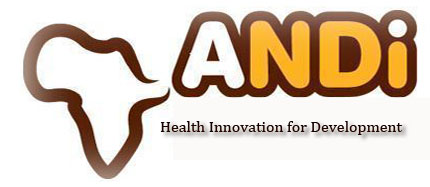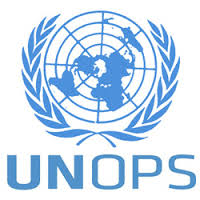CO-ADD facilitates antibiotic drug discovery in Africa
Health researchers in Africa are joining forces with experts at The University of Queensland in the quest for a new global drug development.
The University of Queensland (UQ) and African Network for Drugs and Diagnostics Innovation (ANDI) signed a Memorandum of Understanding (MoU) to facilitate Drug Discovery in Africa.
UQ’s Community for Open Antimicrobial Drug Discovery (CO-ADD) based at the Institute for Molecular Bioscience (IMB) has signed a Memorandum of Understanding (MOU) with the African Network for Drugs and Diagnostics Innovation (ANDI) which is hosted by the United Nations Office for Project Services (UNOPS).
The MoU commits the two institutions to partner in collaborative scientific capacity building, cross-promotion of research programs, experience sharing, learning and capacity building, joint development of funding applications, joint organization of trainings, conferences, seminars, and other academic meetings, as well as specific scientific, technical or administrative programs.
CO-ADD Director Professor Matthew Cooper said the partnership will create an opportunity for CO-ADD to enhance collaborations in health R&D and innovation in Africa.
“We are challenging current paradigms and the challenges of the pharmaceutical industry to discover new antibiotics, and partners such as the Pan-African Network for Drugs and Diagnostics Innovation help CO-ADD realise our vision of developing new treatments,” he said.
“This collaboration has a potential for selected African research institutions including ANDI’s Centres of Excellence to have free access to UQ’s antimicrobial screening program, and help generate scientific publication and intellectual property to support new drug discovery in the African continent,” he said.
ANDI Executive Director Dr Solomon Nwaka said the MoU was a positive step in the right direction.
“The partnership with UQ is an exciting technology transfer between the Northern and Southern hemispheres to advance the discovery of new chemical entities with potential to contribute to the fight against antimicrobial resistance,” he said.



Media
UQ CO-ADD: Ruth Neale, r.neale1@uq.edu.au, +61 487955790;
ANDI/UNOPS: Habtamu Weldeyohannes, HabtamuG@unops.org, +251 911458039;
Ruth Getachew, RuthG@unops.org, +251 911673802.
About ANDI
ANDI (African Network for Drugs and Diagnostics Innovation) was launched in Abuja, Nigeria in 2008 and is a response to global and regional calls and declarations to support health and health research capacity in Africa and other developing regions of the world through activities that include enhancing research and development collaboration among African institutions and countries, as well as by promoting sustainable access to health products.
ANDI’s primary objective is to promote and support health product research and development led by African institutions for diseases of high prevalence in the continent. The expected outcome is the discovery, development and delivery of affordable new health tools including those based on traditional medicine, as well as the development of capacity and establishment of centres of research excellence.
Antibiotic Resistance in Africa
The WHO states that significant drug resistance in the African region has been reported for diseases such as cholera, dysentery, typhoid, meningitis, gonorrhoea, tuberculosis (TB), malaria and AIDS. Africa carries a severe burden, with 281 tuberculosis cases per 100,000 population in 2014, compared with a global average of 133 and an Australian average of 6. In South Africa, about 1% of the population of about 50 million develop active TB each year. This is the world’s third highest incidence after India and China.
